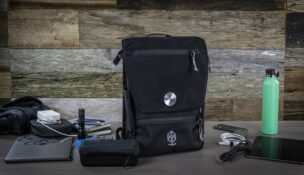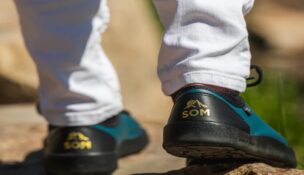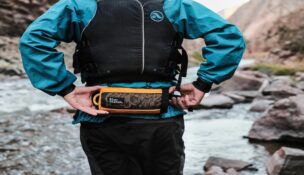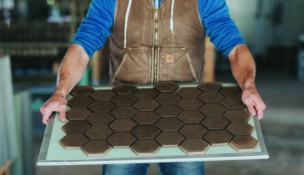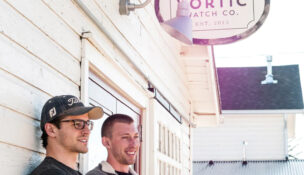Made in Colorado (Winter 2023): Huberd Shoe Grease’s 100 Year-Long Journey
Now based in a 5,000-square-foot barn, Huberd Shoe Grease uses vintage equipment from the 1940s to mix and package its products.
Eric Peterson //December 28, 2023//


Made in Colorado (Winter 2023): Huberd Shoe Grease’s 100 Year-Long Journey
Now based in a 5,000-square-foot barn, Huberd Shoe Grease uses vintage equipment from the 1940s to mix and package its products.
Eric Peterson //December 28, 2023//
There’s a common misconception that the United States doesn’t manufacture much anymore. In reality, the country continues to out-manufacture China on a per capita basis, and domestic growth outpaced the global average for the first time in years in late 2022.
Colorado is a case in point. Data from the Federal Reserve Bank of St. Louis shows that employment in Colorado’s manufacturing sector peaked in 1998 at 192,200 workers. That plummeted to 122,200 employees in 2010, but the state’s manufacturing workforce has steadily grown to surpass 150,000 as of late 2023.
With these dynamics front and center, this year’s “Made in Colorado” profiles illuminate 10 of the state’s pioneering manufacturers, makers of whiskey, satellites and just about everything in between. Today, we’re highlighting Huberd Shoe Grease’s 100 year-long journey
READ: Inside the Colorado Semiconductor Industry Renaissance — CHIPS Act Sparks Manufacturing Revival
Huberd Shoe Grease
Apparel & Supplies
Bennett, Colorado
Website: www.huberds.com
J.W. Huberd started making his namesake shoe grease in Oregon in 1921. Michael and Stacey Cranwill have shepherded the leather-protecting and -preserving product into its second century on Colorado’s Eastern Plains.
Transitioning from a career in law enforcement, Michael jumped at the opportunity to buy the business in 2017. “It was a very interesting little business and it had been neglected for a long time,” Michael says. “I’m the fourth owner, and they’ve never gone out and actively pushed these products in different markets. So we’re finding that it’s a 100-year-old startup business, basically.”
Now based in a 5,000-square-foot barn, the company uses vintage equipment from the 1940s to mix and package its four products: Huberd’s Shoe Grease, Huberd’s Shoe Oil, Huberd’s Leather Dressing, and Huberd’s Saddle and Tack Conditioner.
The recipes remain the same as those developed by J.W. Huberd a century ago, with ingredients like beeswax, pine tar and neatsfoot oil. “The components are all the same as they were in the ‘20s, except that you have to be really keen on the qualities of the materials,” Michael says.
The Cranwills have more than doubled sales in their six years of ownership, with plenty of runway for growth. The sports market is fertile ground. Michael says the shoe grease and shoe oil work wonders on softball and baseball gloves. “You can chuck it in the closet and it’s going to stay nice and supple.”
He’s also looking to get it on more shelves in the company’s new home state. “We want to sell to mercantiles and hardware stores,” Michael says. “We have a hard time talking to mom-and-pop stores, but I implemented a pricing strategy. … It actually puts the brick-and-mortar store in the driver’s seat as far as price point, and they still make a tremendous amount of margin on it.”
 Denver-based writer Eric Peterson is the author of Frommer’s Colorado, Frommer’s Montana & Wyoming, Frommer’s Yellowstone & Grand Teton National Parks and the Ramble series of guidebooks, featuring first-person travelogues covering everything from atomic landmarks in New Mexico to celebrity gone wrong in Hollywood. Peterson has also recently written about backpacking in Yosemite, cross-country skiing in Yellowstone and downhill skiing in Colorado for such publications as Denver’s Westword and The New York Daily News. He can be reached at [email protected].
Denver-based writer Eric Peterson is the author of Frommer’s Colorado, Frommer’s Montana & Wyoming, Frommer’s Yellowstone & Grand Teton National Parks and the Ramble series of guidebooks, featuring first-person travelogues covering everything from atomic landmarks in New Mexico to celebrity gone wrong in Hollywood. Peterson has also recently written about backpacking in Yosemite, cross-country skiing in Yellowstone and downhill skiing in Colorado for such publications as Denver’s Westword and The New York Daily News. He can be reached at [email protected].






